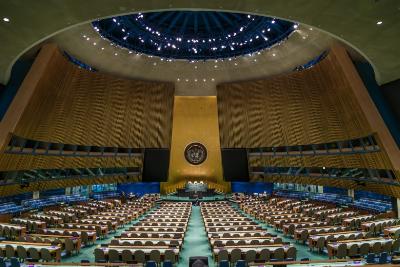- Egypt and the Lao People's Democratic Republic were elected Vice-Presidents of the General Assembly, despite being ranked "Not Free" by Freedom House. Egypt was also elected Vice-Chair of the U.N. General Assembly Sixth Committee, which is the Assembly's main committee charged with monitoring the implementation of international law and its requirements.
- Djibouti was elected Chair of the U.N. General Assembly Third Committee, responsible for human rights, humanitarian affairs and social matters. According to the U.S. State Department report on Djibouti, "Significant human rights issues included: unlawful or arbitrary killings including extrajudicial killings; cases of cruel, inhuman, or degrading treatment or punishment by the government; harsh and life-threatening prison conditions; arbitrary arrest or detention; arbitrary or unlawful interference with privacy; serious restrictions on free expression, the press, and the internet, including violence, threats of violence, or unjustified arrests or prosecutions against journalists..."
- Qatar was elected Chair of the U.N. General Assembly Sixth Committee, which deals with observing and defining international law and other legal matters. This is notwithstanding the fact that in Qatar, according to the U.S. State Department, "The government interprets sharia as allowing corporal punishment for certain criminal offenses, including court-ordered flogging in cases of alcohol consumption and extramarital sex by Muslims... In family law matters, a woman's testimony is deemed one-half of a man's testimony... [A] new law criminalizes a broad range of speech and publishing activities both on and offline with penalties including up to five years' imprisonment and a substantial fine."
- Afghanistan, Eswatini (Swaziland), Kazakhstan and Oman - all ranked "Not Free" by Freedom House - were elected to the Economic and Social Council, the U.N.'s central platform for promoting social development.
June 8, 2021
Multiple Repressive Regimes Elected to U.N. Leadership Positions
On June 7, 2021, the U.N. General Assembly elected multiple oppressive states to top positions within the U.N. leadership. The stalwarts of human rights elected to leadership positions include:
Date
June 8, 2021
Title
Electing Maldives Foreign Minister Abdullah Shahid President of Seventy-Sixth Session, General Assembly Selects Main Committee Bureaus, Economic and Social Council Members,
UN Press Release
Original Source

